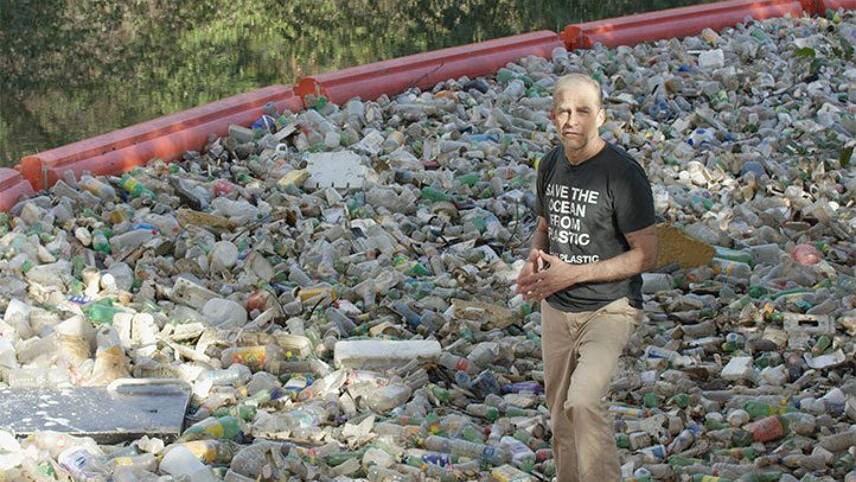Register for free and continue reading
Join our growing army of changemakers and get unlimited access to our premium content

Pictured: The firm's chief executive Fisk Johnson
The business announced today (16 November) that post-consumer recycled (PCR) plastics will account for 19% of its total packaging output for 2021, up from 14% in 2020.
Changes made to packaging since SC Johnson first updated its plastics commitments in 2018 include switching all Windex bottles to 100% PCR plastics and trialling a washing-up liquid bottle made from 50% ocean plastic through its Ecover brand.
As well as sourcing PCR directly from waste management companies in its largest markets, the firm has a global partnership with the Plastic Bank, which connects businesses with communities in developing countries that are grappling with plastic pollution. It provides the training and infrastructure needed to grow the recycling industry in a way that improves the economic and social conditions for local communities.
The Plastic Bank this year announced that it has enabled the recycling of the equivalent of a billion plastic bottles that would have otherwise ended up polluting nature, with SC Johnson funding around half of its total recycling volume. Other businesses supporting the scheme include The Body Shop and Henkel.
A smaller-scale recycled plastic initiative from SC Johnson has involved partnerships with Liverpool Football Club, the Milwaukee Bucks and the Milwaukee Brewers, which involved the collection of plastic bottles and cups purchased during matches for recycling into packaging.
This progress means that SC Johnson has updated its 2025 recycled plastics target and is now aiming for 25% of its packaging output to be accounted for by PCR plastics within four years.
edie recently interviewed SC Johnson’s chief communications officer, Alan VanderMolen, on the company’s plastics-related progress as part of the ongoing #SustyTalks video series. You can watch that discussion in full here.
New Plastics Economy Global Commitment
SC Johnson announced its progress on recycled plastics to coincide with the Ellen MacArthur Foundation’s annual progress report for its New Plastics Economy Global Commitment. The Commitment was launched in 2018 and now has 63 corporate signatories including Danone, Unilever, Mars, PepsiCo, The Coca-Cola Company and L’Oreal, as well as SC Johnson, which is an official partner to the Foundation.
The Commitment aims to create a “new normal” for plastic packaging by eliminating single-use packaging materials, increasing the amount of reused or recycled plastics in new products and innovate to ensure 100% of plastic packaging can be reused, recycled, or composted by 2025.
As well as reporting progress on recycled plastics, SC Johnson confirmed that 65% of the company’s packaging is designed to be recyclable or reusable – up from 62% in 2019.
Recyclability has been improved by the elimination of hard-to-recycle elements in some packaging formats. As for reuse, the company is aiming to have at least 25 and up to 40 refill stations operating by the end of the year and will confirm plants to add “significantly more” in 2022. The UK, Germany, Belgium and Netherlands have been chosen as the first markets to test and scale this format, which enables customers to fill concentrate bottles. SC Johnson claims that a concentrate bottle contains 80% less plastic by weight than a typical trigger bottle, in and of itself. Refilling will, of course, prevent further plastic use.
A key takeaway from today’s Ellen MacArthur Foundation report is that corporates will need to accelerate and scale efforts on reusable packaging in the coming months and years. Only 5% of the brands assessed in the report are currently using refill or return models in some capacity. For most, this covers a small portion of packaging-related investment and of total product portfolios.
Sarah George


Please login or Register to leave a comment.